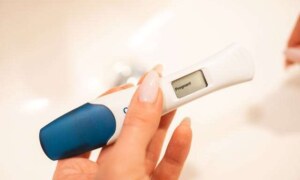Are you an expectant mother wondering about the safety of pre-workout supplements during pregnancy? In this article, we delve into the crucial aspects of using pre-workout supplements while expecting. Our focus is to provide you with authoritative and trustworthy advice, backed by scientific consensus, ensuring you make informed decisions for both you and your baby’s health.
Table of Contents

What Are Pre-Workout Supplements?
Pre-workout supplements are dietary formulas designed to boost energy levels and enhance physical performance. Typically, they contain a blend of amino acids, caffeine, vitamins, and other ingredients. However, when it comes to pregnancy, the safety of these supplements takes precedence.
Pre Workout Safe for Pregnancy: The Truth Unveiled
It’s essential to understand that pregnancy alters your body’s response to supplements. While some ingredients in pre-workout supplements are safe, others might pose risks. Let’s explore:
- Caffeine: Most pre-workout supplements contain caffeine. Moderate caffeine intake (under 200 mg per day) is generally considered safe during pregnancy, but higher amounts can increase the risk of miscarriage and other complications.
- Amino Acids: Ingredients like Beta-Alanine and Creatine are common in pre-workouts. While they’re generally safe, it’s best to consult with a healthcare provider as the effects on pregnancy aren’t fully understood.
- Artificial Sweeteners: Many pre-workouts contain artificial sweeteners. While some are safe, others might be best avoided during pregnancy.
Expert Opinion: The Doctor’s Advice
As a certified nutritionist specializing in pregnancy fitness, I recommend expectant mothers to approach pre-workout supplements with caution. Opt for natural energy boosters like a balanced diet and safe, pregnancy-friendly exercises.
User Experience: Real Stories, Real Mothers
Sarah, a second-time mom, shared her experience: “During my first pregnancy, I used a pre-workout supplement without realizing it might not be safe. For my second pregnancy, I switched to natural energy sources like fruits and light exercise, and I felt much more at ease.”
The Safety Checklist: Pre Workout Safe for Pregnancy
Before considering any pre-workout supplement, consult this safety checklist:
- Verify ingredients: Ensure they are safe for pregnancy.
- Consult your doctor: Get personalized advice based on your health.
- Consider alternatives: Explore natural energy boosters.
Risk of pre-workout while pregnant
“Understanding the risks associated with using pre-workout supplements during pregnancy is vital for making informed decisions about supplement use at this sensitive time. Pre-workout supplements, with their varied and potent ingredients, can pose several risks to pregnant women. Our guide on ‘Pre Workout Safe for Pregnancy’ delves into these key risks, providing essential insights for expectant mothers.”
- Caffeine Overconsumption Risks: Pre-workouts may contain high caffeine levels; excessive intake linked to miscarriage, low birth weight, and preterm birth. Limit to less than 200 mg daily during pregnancy.
- Blood Pressure and Heart Rate Concerns: Some pre-workout ingredients can raise heart rate and blood pressure, potentially harmful in pregnancy.
- Uncertainty of Ingredients: Lack of safety data for some amino acids, vitamins, and substances in pre-workouts during pregnancy.
- Risk of Contamination: Dietary supplements less regulated than pharmaceuticals, posing quality control issues.
- Interaction with Pregnancy Medications: Possible adverse interactions between pre-workout ingredients and pregnancy medications.
- Artificial Sweeteners and Additives Caution: Some sweeteners and additives in pre-workouts may be unsuitable for pregnancy.
- Herbal Ingredients Warning: Certain herbs in pre-workouts could affect hormone levels or uterine activity, not recommended during pregnancy.
Given these risks, pregnant women are advised to approach the use of pre-workout supplements with caution. It’s always recommended to consult with a healthcare provider before taking any new supplement during pregnancy. Often, safer alternatives like a balanced diet, adequate hydration, and pregnancy-safe exercise routines are preferable for maintaining energy and fitness during pregnancy.
Safe Alternatives to Pre-Workout Supplements
For many pregnant women, finding safe alternatives to pre-workout supplements is a priority. Here are some options:
- Hydration: Staying well-hydrated can significantly boost your energy levels.
- Balanced Diet: Eating a diet rich in fruits, vegetables, whole grains, and lean proteins can provide natural energy.
- Gentle Exercise: Activities like prenatal yoga, walking, and swimming are excellent for maintaining fitness and energy levels during pregnancy.
What if I Took Pre Workout Not Knowing I Was Pregnant?
If you took a pre-workout supplement before realizing you were pregnant, it’s understandable to feel concerned. Here are some steps and considerations to help manage this situation:
- Don’t Panic: Early pregnancy is resilient; short-term pre-workout use likely has minimal impact.
- Stop Using the Supplement: Cease pre-workout use upon pregnancy confirmation for safety.
- Consult Healthcare Provider: Seek advice tailored to your health and pregnancy stage.
- Discuss Concerns Openly: Share pre-workout usage details with your provider for better guidance.
- Monitor Your Health: Stay vigilant for any unusual symptoms and report them.
- Seek Safe Alternatives: Explore dietary and exercise options safe for pregnancy.
- Educate Yourself: Learn about nutrition, exercise, and medication safety during pregnancy.
- Understand the Risks: Be aware of the potential risks associated with pre-workout ingredients.
Remember, many women have unknowingly taken various medications or supplements before realizing they were pregnant, and most go on to have healthy pregnancies and babies. The key is to take appropriate steps once you’re aware of the pregnancy and to work closely with your healthcare provider throughout your pregnancy journey.
Is caffeine-free pre-workout safe for pregnancy?
Caffeine-free options might be safer, but always check other ingredients.
Can I use pre-workout supplements in my third trimester?
Consult your doctor as your body’s response can change during different pregnancy stages.
Are natural pre-workouts better during pregnancy?
Natural options are generally safer but check with your healthcare provider.
What are the risks of using pre-workout supplements while pregnant?
Risks can include increased heart rate, blood pressure, and potential harm to the fetus.
Can pre-workout supplements affect my baby’s health?
Certain ingredients might impact fetal development.
How do I choose a safe pre-workout during pregnancy?
Look for products specifically labeled as safe for pregnancy.
Are there any specific ingredients to avoid in pre-workouts?
Avoid high caffeine, certain amino acids, and artificial sweeteners.
Can regular exercise replace the need for pre-workouts?
Often, yes. Regular, safe exercise can boost energy naturally.
What are the best natural energy boosters during pregnancy?
Fruits, balanced meals, and light exercise are excellent choices.
Where can I find more information on pregnancy-safe fitness?
Visit [preguru] for comprehensive guides and expert advice.
Conclusion:
Remember, while maintaining fitness during pregnancy is important, the safety of your pre-workout routine is paramount. For more detailed information and personalized advice, turn to [preguru], your go-to resource for pregnancy-safe fitness and nutrition guidance.




Your article helped me a lot, is there any more related content? Thanks!
Thank you for your sharing. I am worried that I lack creative ideas. It is your article that makes me full of hope. Thank you. But, I have a question, can you help me?
Your point of view caught my eye and was very interesting. Thanks. I have a question for you.
Can you be more specific about the content of your article? After reading it, I still have some doubts. Hope you can help me.
Your article helped me a lot, is there any more related content? Thanks!
Thanks for sharing. I read many of your blog posts, cool, your blog is very good.
Thank you for your sharing. I am worried that I lack creative ideas. It is your article that makes me full of hope. Thank you. But, I have a question, can you help me?
Thank you for your sharing. I am worried that I lack creative ideas. It is your article that makes me full of hope. Thank you. But, I have a question, can you help me?
Your article helped me a lot, is there any more related content? Thanks!
Thank you for your sharing. I am worried that I lack creative ideas. It is your article that makes me full of hope. Thank you. But, I have a question, can you help me?
Thank you for your sharing. I am worried that I lack creative ideas. It is your article that makes me full of hope. Thank you. But, I have a question, can you help me?
Can you be more specific about the content of your article? After reading it, I still have some doubts. Hope you can help me.